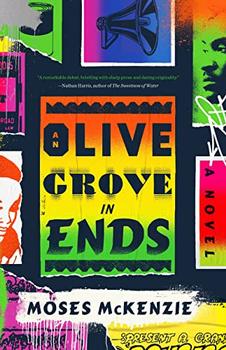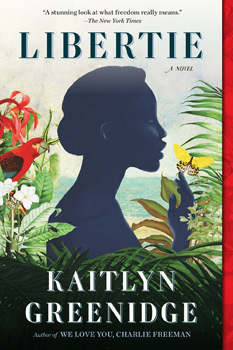Summary | Excerpt | Reviews | Beyond the book | Read-Alikes | Genres & Themes | Author Bio

A novel
by Nadifa MohamedThe Fortune Men by Nadifa Mohamed, a finalist for the Booker Prize, tells the true story of Mahmood Mattan, a Black man living in Cardiff, Wales who in 1952 was convicted of a murder he did not commit and executed. It is an enraging novel about blatant injustice and cruelty; for Mahmood, racism is a nightmarish labyrinth from which there is no escape. The book is all the more harrowing for knowing his fate from the beginning—that each time he speaks, the police won't believe him; that each flicker of hope will be extinguished.
Mohamed opens her novel with the British king's death, and Somali sailors wondering whether it will portend independence in East Africa. Mahmood himself doesn't engage in the brief discussion (he doesn't care for politics) but the question of freedom from white imperialism—on a geopolitical level and a personal one—is at the heart of his story. He is a sailor originally from British Somaliland (the northern part of present-day Somalia), whose yen for adventure and autonomy has taken him all over the world (at 24 years old, he's been to all seven continents). In Cardiff he rarely works, preferring to steal and gamble. What he wants most is to "be his own master." He understands the power that the white British have over his life, but he doesn't respect or believe in it. He is often preoccupied, when he is in prison, by the possibility of losing his mind. "I can see how men go mad," he tells his wife. "You open a door in your mind and just step through, easy." He is determined not to lose that control, too—the control of his own thoughts.
This is an existentially gripping story, and Mahmood is a compelling protagonist. The major weakness of The Fortune Men, in my opinion, lies in the prose, which I found to be rather disappointing. Many of Mohamed's sentences have the same basic syntax—main verb clause, dependent clause—which gives the writing a sort of boring, plodding feel that is at odds with the emotional grip of its subject matter. In one early paragraph, which describes the home life of Violet Volacki, the murder victim at the center of the novel, three sentences in a row have almost the exact same cadence:
Daniel arrives while they are eating breakfast, the fear of the night veiled by the homely scents of coffee and toast. Violet blushes as he leans over to grab a crust from her plate, his deep, foreign-accented voice thrilling her and his bearlike body filling the dining room. She snatches a glance at his pale, wide-eyed face lost in the black fur of his bear and astrakhan hat, crumbs catching in his moustache.
Violet is unmarried and has feelings for Daniel, her sister's husband, and Mohamed's brief but sympathetic portrayal of this fraught, disappointing relationship and its inevitable ending (aloneness, death) mirrors the relationship between Mahmood and his wife. This short scene, then, is doing a lot of work for Mohamed's character-driven narrative. And while I personally was distracted by the sameness of the prose, which persists throughout the book, it's also interesting to observe how the rhythm of the sentence structure—we move forward in the first clause, then we stall in the second—exists, too, in the larger structure of the novel. Whenever things begin to heat up (Mahmood's arrest, then the trial), Mohamed slows down the forward plot motion by burrowing deeper into the past. There is a fascinating chapter about Mahmood's early life in Somaliland and Kenya, as well as long passages about Violet's sister's service during World War II.
The narration of The Fortune Men roams freely, often leaving Mahmood behind and dipping into the perspective of Violet or her sister, or briefly into that of a minor character. In its most effective moments, this omniscient narration allows Mohamed to capture the expansiveness of her characters' inner lives: how much love and regret they can harbor; how their personal, individual struggles are magnified, not diminished, by the important events surrounding them. If sometimes the historical facts appear a little too clumsily inserted, and betray the labor of research a little too much, that seems like a reasonable price to pay to be transported to Somaliland, to World War II Britain, to the middle of the Indian Ocean and to Cardiff's cacophonous docks.
The Fortune Men's final third is its most masterful and emotional; Mohamed mostly leaves memories (and characters other than Mahmood) behind, finally sinking deep into the despair and incomprehension of the main character's situation and delivering on the psychological horror that his story promises. When the trial arrives, the novel briefly transforms into a silhouette of a courtroom drama, providing the reader only with impersonal but exhilarating examination transcripts. Like with much of the novel, I questioned the effectiveness of this section at first, until I found myself once again engrossed, and then—despite the inevitability of the outcome—shocked and crushed.
![]() This review was originally published in The BookBrowse Review in January 2022, and has been updated for the
November 2022 edition.
Click here to go to this issue.
This review was originally published in The BookBrowse Review in January 2022, and has been updated for the
November 2022 edition.
Click here to go to this issue.

If you liked The Fortune Men, try these:

by Moses McKenzie
Published 2023
An electrifying debut about a young man faced with a fraught decision: escape a dangerous past alone, or brave his old life and keep the woman he loves.

by Kaitlyn Greenidge
Published 2022
Set in the Reconstruction era, this unforgettable story explores one young Black woman's attempt to find a place where she can be fully herself – out of the shadow of her accomplished mother in Brooklyn and her traditional husband in Haiti. Perfect for readers of Brit Bennett, Min Jin Lee, and Yaa Gyasi.
Your guide toexceptional books
BookBrowse seeks out and recommends the best in contemporary fiction and nonfiction—books that not only engage and entertain but also deepen our understanding of ourselves and the world around us.